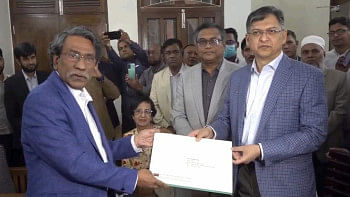ISPs await fresh guidelines

The government will soon revise guidelines for internet service providers and bring down licensing categories in a bid to streamline broadband internet business in the country.
Licence fees and annual charges will be hiked, while users will be able to set parental controls to reduce the risk of children encountering inappropriate contents online.
Currently ISP licences are awarded in six categories, but under the new guidelines, there will be four types of licences.
Both the government and the ISP operators have agreed to increase the licence fees and charges, Telecom Minister Mustafa Jabbar said.
"We were observing that there was a lack of regulations in broadband internet business and that's why we have taken this initiative to frame new guidelines which will be passed within a short time," Jabbar said.
The parental control features will help contain crimes and enable children to use the internet in the most productive ways, he added.
The licensing jurisdiction was not specific in the previous guidelines but it will be specifically mentioned this time, Jabbar said.
"I have already told the telecom regulator that the ISP licences will be awarded and renewed under the new guidelines from now," he added.
The six categories of licences being provided now are: nationwide, central zone, zonal, category A, category B and category C. The licences will be nationwide, divisional, district and local as per the new guidelines.
The ISPs with the nationwide licences now pay Tk 1 lakh per year which will be raised to Tk 2.50 lakh once the proposed guidelines come into effect.
The central zone and zonal licence fees were Tk 50,000 which will rise to Tk 1.50 lakh under the divisional category.
ISPs are now paying Tk 5,000 in annual fees for category A licences for providing internet connections in metropolitan areas. The fee will be Tk 1 lakh in the district level, according to the new guidelines.
The categories B and C that offer connectivity in rural areas will be renamed as local ISPs and their fees will go up to Tk 25,000 from Tk 2,500.
The Internet Service Providers Association of Bangladesh (ISPAB) said they were on the same page with the government over the new guidelines but called for steps to rein in the number of licences as the sector is oversaturated.
As of January this year, there were 57.43 lakh active fixed internet connections in the country, up from 57.30 lakh at the end of January last year, according to Bangladesh Telecommunication Regulatory Commission.
The number of licences is rising every month but the number of customers remains almost the same which is why there is an unhealthy competition among the ISPs to rope in customers, said Imdadul Haque, general secretary of the ISPAB.

"We are okay with the upcoming guidelines but the government also needs to stop issuing too many licences," Haque said.
As of February, the number of total ISP licences was 1,985, a jump from 1,218 in June 2018.
Currently the BTRC has about 30 types of telecom licences and at the end of February the number of its total licences ran into 3,468.
BTRC Chairman Md Jahurul Haque acknowledged that the number is quite high and said the government should take the matter into consideration.
"We have the technical know-how to monitor this huge number of licences but the only challenge is a dearth of manpower," Haque told The Daily Star recently.
The telecom minister said the government was keen on increasing broadband internet connections and that was why so many licences were awarded.
"The licence number seems huge but it is logical when you see that there are about ten crore active internet connections in the country and most them want fixed broadband at home and offices," Jabbar added.
The government has scrapped a huge number of licences as the ISPs were not in business, he said, adding that the government will monitor the operators strictly in the coming days.


 For all latest news, follow The Daily Star's Google News channel.
For all latest news, follow The Daily Star's Google News channel. 



Comments